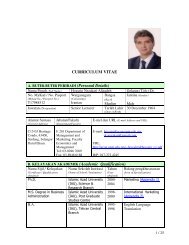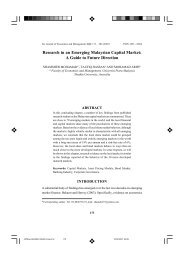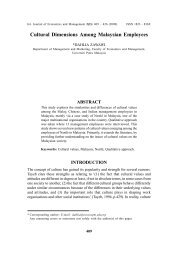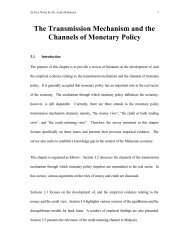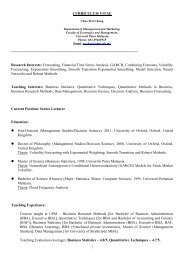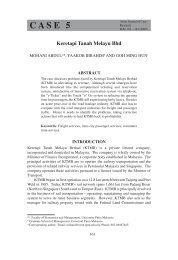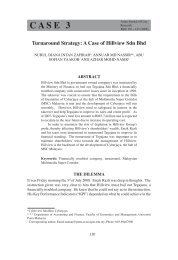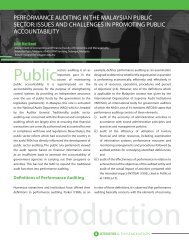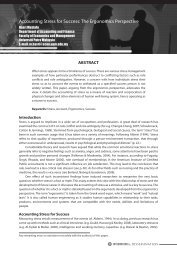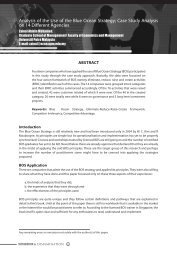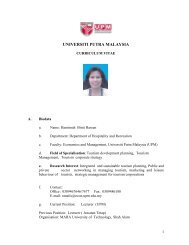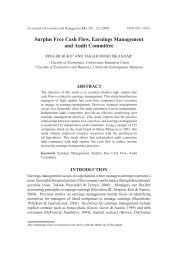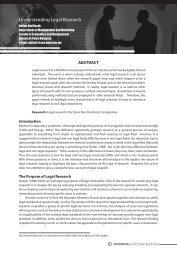KOOLKES SENDIRIAN BERHAD: How Cool Can The Fridge
KOOLKES SENDIRIAN BERHAD: How Cool Can The Fridge
KOOLKES SENDIRIAN BERHAD: How Cool Can The Fridge
Create successful ePaper yourself
Turn your PDF publications into a flip-book with our unique Google optimized e-Paper software.
Asian Journal of Case Research (AJCR)PRESENT AND FUTURE SITUATIONWith the present depressing market situation, most food retail outlets, includingKoolkes’s customers, are compelled to reduce their expenses and increasetheir business opportunities at the same time without spending more for capitalequipments. <strong>The</strong>y will not buy any new equipments unnecessarily. <strong>The</strong>refore,customers mostly sought for after-sales services in maintaining their presentequipments. Most of the projects available are being postponed or completelycancelled as financing facilities were not provided by local banks and financialcompanies. Available bank loans are charged with high interest rates. Any projectsto be realized must be internally funded, which is only possible for family-ownedstores or foreign operators who bring their own funding into the country.“Only hypermarket giants such as Makro and Carrefour couldstill plan new outlets in Malaysia. <strong>The</strong>y are our only hope.Others that need support from our local banks don’t standa chance, not at this moment. Also, with the market gettingsmaller, the competition to secure new projects is much stiffernow than ever,” Mr. P. K. Gong commented during a meetingwith the marketing director of Costan.<strong>The</strong> refrigerated display showcases were totally imported and payment mustbe made in advance to supplier before any shipment can be made. <strong>The</strong> equipmentwas costly and without the support from the banks or finance companies, itwould not be possible for the local operators to purchase new equipment for theirprojects.THE FOOD RETAIL INDUSTRY – AN ASIAN PERSPECTIVE<strong>The</strong> June 2004 edition of the Asian supermarket magazine reported that currencyinstability had badly affected the food retail industry in Asia. In countries underthe IMF (International Monetary funds) bailouts such as Indonesia, Thailand,South Korea and to a certain extent, the Philippines, imports were no longerpossible. <strong>How</strong>ever, the existing hypermarket and supermarket, especially thosewhich were involved with perishables and foodstuffs, were able to maintain theirbusiness.In spite of the recession, the hypermarkets and supermarkets would continueto survive as they dealt with foods and groceries, which would no longer beimported but sourced locally. During difficult time, people would spend onnecessities for which food was the most important.158



